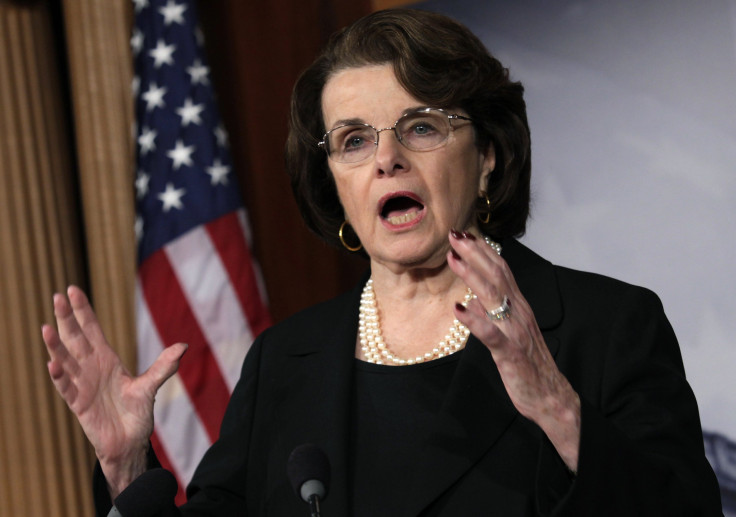Who Is Dianne Feinstein, The Senator Behind The CIA Torture Report?

U.S. Sen. Dianne Feinstein, D-Calif., perhaps made the biggest mark on her legacy with the release Tuesday of the Senate Intelligence Committee report on CIA enhanced interrogation techniques. Feinstein is the chairwoman of the powerful committee, and is the first woman to hold that position.
"This hasn't been an easy decision to move ahead,” Feinstein, 81, said Tuesday about her decision to declassify the report’s executive summary. Some officials are worried that the report, which states that enhanced interrogation techniques used by the CIA under the George W. Bush administration were torture, will fuel attacks against American targets in the Middle East or other foreign countries. On the other side, proponents of the report’s release say it's needed for the government to be transparent and avoid future instances of torture. So how did Feinstein get to this point?
It all began in 1969, when she was elected to the San Francisco Board of Supervisors, the equivalent of a city council. As a Jewish woman, Feinstein was a target of the New World Liberation Front, a radical San Francisco-based group that held anti-feminist and anti-Zionist beliefs. The group tried to blow up her home in the 1970s -- an incident that led Feinstein to get a concealed weapon permit, according to the Hill. Feinstein no longer has the permit.
"Later the same group shot out all the windows of my home and I know the sense of helplessness that people feel,” she said during a 1995 Senate hearing on renewing the federal assault weapons ban. “I know the urge to arm yourself, because that’s what I did. I was trained in firearms.”
Feinstein rose to become president of the Board of Supervisors, and served as the mayor of San Francisco after the assassination of then-Mayor George Moscone in 1978. Harvey Milk, the first openly gay person to be elected in California, was killed along with Moscone.
Feinstein won her first full term as mayor in in 1979, an office she held until 1988. In 1991, she won her first term as a U.S. senator from California. In Washington, she's known for reaching across the aisle. “I think my greatest strength is finding a solution when there are opposing sides,” Feinstein said in a 2012 profile in the San Francisco Chronicle.
But don’t take her willingness to compromise as a sign of weakness, a former aide told the paper. “She has a towering presence, both literally and figuratively, a sharp intellect and she is persistent to a fault," Susan Kennedy said. "The combination of those three things makes her an incredibly intimidating force. She feels an immense responsibility of holding public office, much more so than anyone I've ever met."
Feinstein said it wasn’t just a responsibility -- it was her calling.
“It’s what I’m meant to do,” she said.
© Copyright IBTimes 2024. All rights reserved.






















